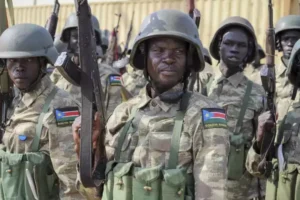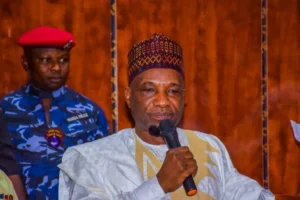The office of former US president Jimmy Carter (98), who has been frail for some time, has announced that he will no longer seek hospital treatment for his ailments. He has instead opted for hospice care at his modest home in the rural farming village of Plains, Georgia, close to where he was born.
His opposition to racism and his support for human rights are legendary, made more compelling by his life-long commitment to live among rural Georgians where segregation was severe and discrimination remains prevalent today. This enduring commitment to non-racialism and human rights at home also shaped his interest and engagement in Africa.
We discussed African affairs often during the nine years (2006-2015) when I directed the Carter Centre Peace Programmes. My most frequent trips to Africa for the centre were to lead election observation missions, in which he was keenly interested.
His views on Africa can be assessed from three angles:
- Africa policies pursued during his presidency, 1977-1981
- Programmes in Africa with the Carter Centre while he was its leader, 1982-2015
- His moral determination to reckon with racism.
Africa policies
In her book Jimmy Carter in Africa: Race and the Cold War Nancy Mitchell, a professor of history at North Carolina State University, analyses in 900 pages how Carter’s leadership and core values, discussed in the third section, influenced his approach to southern African. But Michell reminds us that in the 1970s Africa was the hottest theatre of the Cold War.
The book’s subtitle, however, highlights a significant shift of emphasis skilfully effected by Carter and key to his success in helping liberate Rhodesia (today Zimbabwe) by treating all sides, even “Communists”, with respect. Carter’s behind-the-scenes role in supporting the 1979 Lancaster House agreement, which led to Zimbabwean independence, was among his greatest diplomatic achievements.
Many years later, I was told by a close advisor to longtime Zimbabwean leader Robert Mugabe that, had Carter won a second term, he said he would work to raise US funds to facilitate a key element of the peace accord, land reform based on ‘willing seller, willing buyer’.
home. This, I believe, may have driven his long involvement in Africa.
Having grown up in tightly segregated rural Georgia, he recalled that his family was:
completely surrounded by African-American children, with whom I played and worked in the fields and hunted and fished in the woods. And I got to know, eventually and slowly, the difference between a privileged group and the ones around us who were not permitted to vote, or to serve on a jury, or to go to a decent school.
He added:
I think this, more than anything else, has shaped my life — partially because of the guilt I still feel in not having recognised that disparity between us early on. I took it for granted that if the Supreme Court and the Congress and the American Bar Association and the universities and the churches said it was OK for white people to be superior, that was OK with God. And I think that that experience has been the most overwhelming factor in shaping my life …
Carter, as I discovered, can be a hard man to work for. He holds himself and those around him to extremely high moral and ethical standards. As president, he kept the peace, told the truth, and obeyed the law. Carter also promised never to profit from the presidency – a pledge, from my observation, that he has scrupulously honoured.
His record should remind all democrats, including those in Africa, to hold leaders accountable to similar standards. For as he declared during his 2002 Nobel Peace lecture:
The bond of our common humanity is stronger than the divisiveness of our fears and prejudices. God gives us the capacity for choice.
Source : The Conversation
















